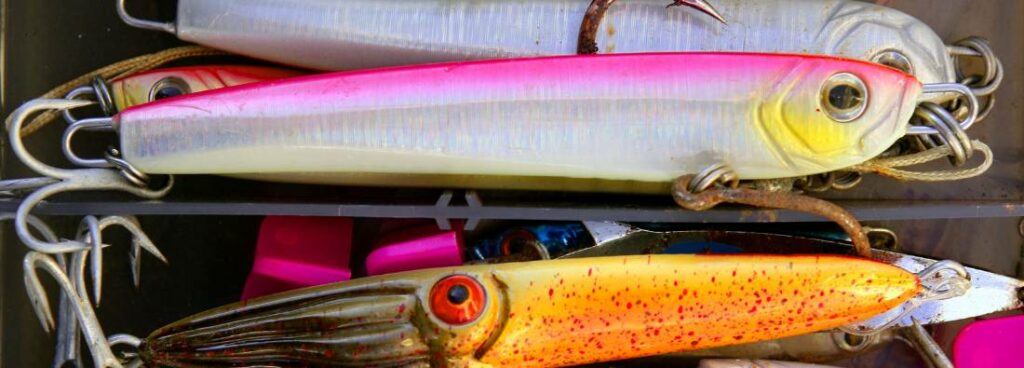Stories Worth Reeling In...
Last Updated on September 18, 2023
Fishing can be a fun and relaxing hobby. Still, nothing is more annoying than having your bait stolen by fish over and over again before you even get a chance to catch one.
In this blog post, I will share some of the most effective tips and tricks I’ve learned to help you deal with “bait thieves.”
The problem of fish stealing bait is not new; it affects anglers of all experience levels. It can be extremely frustrating to target larger fish only to have smaller ones repeatedly steal your bait.
You can significantly increase your chances of catching the fish you want by understanding fish behavior, using proper fishing techniques, and utilizing bait protection devices.
So let’s dive in and explore some of the best ways to prevent fish from stealing your bait.
Table of Contents
If fish keep taking your bait, you can try adjusting your bait presentation and rig setup, using bait protection devices, using the right fishing line strength, and keeping a low profile, and being quiet. By implementing these tips and tricks, you can increase your chances of catching more fish.
Fish use their senses of smell, sight, and hearing, among others, to find food. Knowing how the fish you want to catch uses its senses can help you choose the right bait and way to present it.
Some fish, for example, are attracted to the smell of shrimp or squid, while others are drawn to how live bait moves.
When trying to keep fish from stealing your bait, you also need to consider the bait types you use.
Different kinds of fish have different tastes!
For example, try stink bait or chicken liver if you want to catch catfish. But if you’re after bass, your best bet is to use either live food or baits.

When and where you fish are also very important things to think about. There are times of the day and places when fish are more active.
For instance, fish are usually more active at dawn and dusk, so fishing at these times can help you catch more fish.
You can also increase your chances of catching fish by fishing in areas with structures, like rocks or underwater plants.
Proper bait presentation is critical.
Fish are more likely to be attracted to a bait that looks natural and is presented in a way that mimics their natural prey.
When using live bait, it’s essential to hook the bait in a way that allows it to move freely and naturally in the water.
If you are using artificial bait, choosing a lure that mimics the movement and color of the fish’s natural prey is crucial.
Adjusting the bait and rig setup is another essential aspect of proper fishing techniques.
How you rig your bait can affect how easily fish can steal it.
A sliding sinker rig can make it easier for fish to steal your bait, while a Carolina rig can make it more challenging for fish to take the bait without getting hooked.
The size of the hook you use should match the size of your bait.
If the hook is too big, it can be harder for fish to take the bait. If the hook is too small, the fish may swallow the bait and swim away.
Using a circle hook can make it harder for fish to steal your bait without getting hooked.
Bait clips and bait bands are handy for preventing fish from stealing the bait.
Bait clips are small clips that attach to the hook or line and securely hold the bait.
They prevent the bait from sliding off the hook and help adjust the bait depth.
On the other hand, bait bands are small elastic bands that hold the bait in place on the hook. They can be used for soft baits like worms or small fish pieces.

Fishing lures and attractors are also effective bait protection devices. They are designed to mimic the appearance and movement of natural baitfish, which can attract fish to the area and distract them from your bait.
Lures and attractors come in various shapes, sizes, and colors, so choosing the right one for your target species is essential.
Baiting needles and baiting tools can also be very helpful in protecting your bait. Baiting needles allow you to thread your bait onto the hook without touching it, which can help to reduce the human scent on the bait.
This is important because many fish can detect the scent of humans and may be less likely to bite.
Baiting tools like spoons or tongs can also handle the bait without touching it.
Firstly, it’s essential to avoid overfeeding the fish.
If you constantly throw in bait or chum, the fish will quickly become satiated and lose interest in your hook.
The right fishing line strength can also prevent fish from stealing your bait.
If the line is too light, the fish can easily break it and swim away with your bait. On the other hand, if the line is too heavy, it can be too visible and scare the fish away.
Finding the right balance between strength and visibility is vital.
PRO TIP » Make sure your fishing knots are tight!

Lastly, keeping a low profile and quiet can also make a big difference.
Fish are susceptible to their environment and can easily be spooked by loud noises or sudden movements.
It’s important to move slowly and quietly when approaching the water and to avoid making unnecessary noise while fishing.
This will help ensure the fish aren’t frightened and swim away from your bait.
Fish may steal bait without getting hooked because they are too small to fit the bait and hook in their mouths. This is particularly common with aggressive fish like bluegill.
To prevent small fish from stealing your bait, you can use a smaller hook that matches the size of the fish’s mouth. Downsizing your hook can help you catch the smaller fish that are stealing your bait.
Bait thread, also known as magic thread, is a thin and stretchy elastic thread used by anglers to secure bait to hooks. You can hook your bait and wrap the bait thread tightly against the hook shank. The stretchiness of the thread helps keep the bait securely in place, making it less susceptible to theft by fish.
Using a more sensitive bobber allows you to detect subtle fish bites more effectively. A sensitive bobber will have less resistance when a fish pulls it underwater, making it less noticeable to the fish but more noticeable to the angler. Additionally, a sensitive bottom rig like the sliding sinker rig provides more direct contact between your rod and the hook, helping you detect bites more clearly and allowing for well-timed hooksets, reducing the chance of bait theft.
Remember, preventing fish from stealing bait requires the following:
I encourage you to put these tips into practice on your next fishing trip.
With “knowledge” and preparation, you can improve your fishing success and enjoy a more rewarding experience on the water.
Happy fishing!